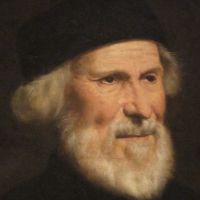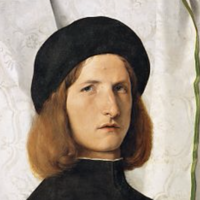Fantastic Testaments of the Middle Ages and the Renassance
Course in Latin Literature and Composition, Padya, 2-5th January 2024
Almorò Cornaro, a noble from Padua, died on January 1, 1594, on the island of San Francesco del Deserto, where he had withdrawn to spend his last days in complete solitude, assisted by a maid and the faithful physician Melchior Zancan. The day after the burial, Cornaro’s seven children, who had been prohibited, under the penalty of exclusion from the will, from visiting their father, are summoned to the notary Zuane Vedramin’s study for the reading of the late testament. The document, unsealed and read in the presence of all seven potential heirs, is an enigmatic and contradictory text, forcing each of them to rack their brains to fulfill the seemingly delirious request of their father.
This invented story, set in the Venetian domains of the late Renaissance, serves as the backdrop for TESTAMENTUM RESURRECTURI, a winter seminar by Schola Humanistica (Padua, January 2-5, 2024), which serves as both a literature course and a prose composition workshop in Latin.
Every morning, under the guidance of the instructors, participants will read ancient, medieval, and humanistic texts related to the parody of the testament. Among these, they will analyze Testamentum Porcelli (4th century AD), Testamentum Lupi (9th century), Testamentum Asini (12th century), Testamentum Leporis (of uncertain dating), and the Oloris Questus contained in the Carmina Burana (12th-13th century). The reading of these texts will be accompanied by exercises in paraphrasing and linguistic analysis.
On the afternoon of January 3, Almorò Cornaro’s testament will be opened. This will be followed by a game involving discussions, role interpretation, and writing exercises, where participants will be guided through Latin words and expressions related to the semantic fields of family, inheritance, money, magic, and travel. Each participant will have the opportunity to write, individually or in groups, a part of the story of Almorò Cornaro and his seven children, and everything will be compiled into a booklet that will be reviewed and sent to participants one week after the conclusion of the seminar. All of this will take place in the evocative setting of Paduan architecture, just steps away from the Basilica of Sant’Antonio.
It will also be possible, for those interested, to take part in a visit to the Scrovegni Chapel and the Civic Museums of the Eremitani.
Deadline for registration: December 15th, 2023
Course schedule
| When | Activity |
| 2nd January | Arrival, hotel check-in, and welcome toast (7:00 PM). |
| 3rd January |
Lessons (9:30-12:30; 15:30-18:30) |
| 4th January | Lessons (9:30-12:30; 15:30-18:30) |
| 5th January | Visit to the Scrovegni Chapel and the Civic Museums at Eremitani.
Departure |





